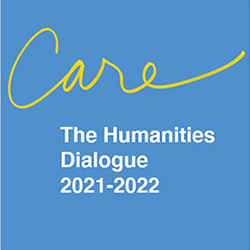CARE Dialogue Keynote - Alexis Pauline Gumbs in conversation with Leah Lakshmi Piepzna-Samarasinha
Webcast Link

Portal4Portal
Rethinking forms and possibilities of care and carework
Renowned poet, activist, and Queer Black feminist scholar Alexis Pauline Gumbs will be in conversation with disability justice theorist and activist Leah Lakshmi Piepzna-Samarasinha on rethinking the forms and possibilities of care and carework. As the pandemic continues alongside the onslaught of state sanctioned violence internationally and locally from war to policing to divestment from public housing, health, and education, the bodily impacts of exhaustion, grief, and mental health issues mount, especially on the bodies of sick and disabled queer Indigenous, Black, and people of color. This conversation is a moment to pause, reflect, and explore modes of worldmaking that allow us to cultivate more liberatory futures.
The dialogue will be moderated by Patricia Nguyen, Assistant Professor of Asian American Studies, Performance Studies, and Council for Race and Ethnic Studies at Northwestern.
Co-presented by the Northwestern Women's Center, the Colloquium on Ethnicity and Diaspora, and the Kaplan Humanities Institute, the event will be presented virtually via Zoom; registration is required (please click "register" link below).
This event will serve as a capstone to the ongoing conversations this year that have been initiated by Northwestern faculty and graduates as part of the Kaplan Humanities Institute's CARE Dialogue, a year-long conversation about care and its possibilities—to capture the urgency of the contemporary moment, and to contribute to the emergent discussions of how we can move through it while better tending to each other and our futures. Made possible in part by the Harris Lecture Fund.
Cost: Free; public welcome!